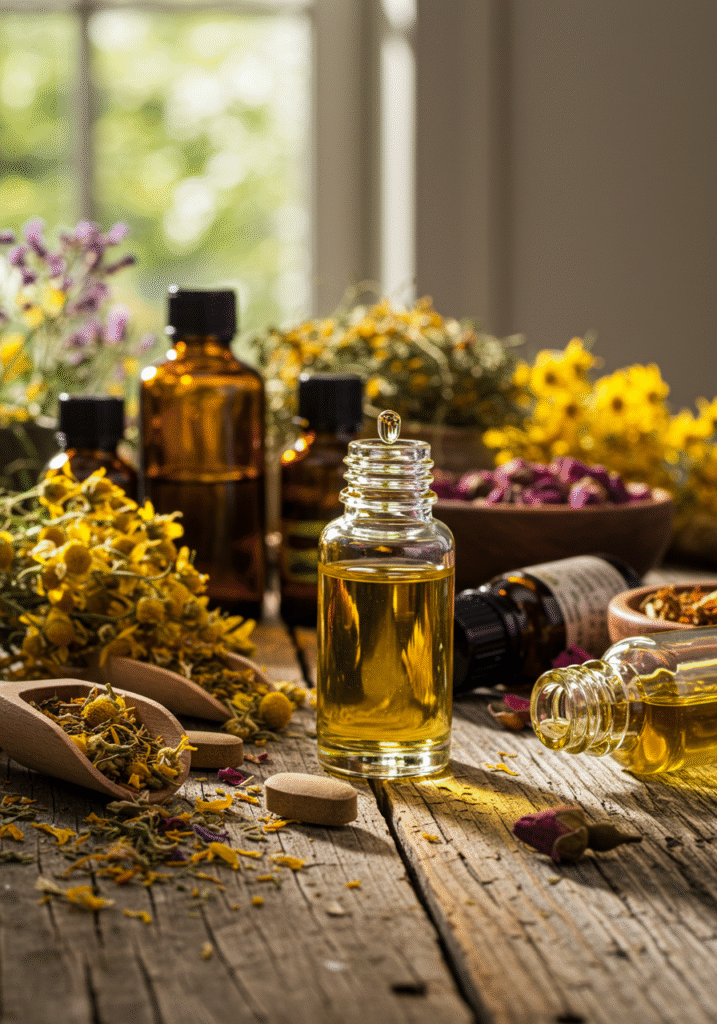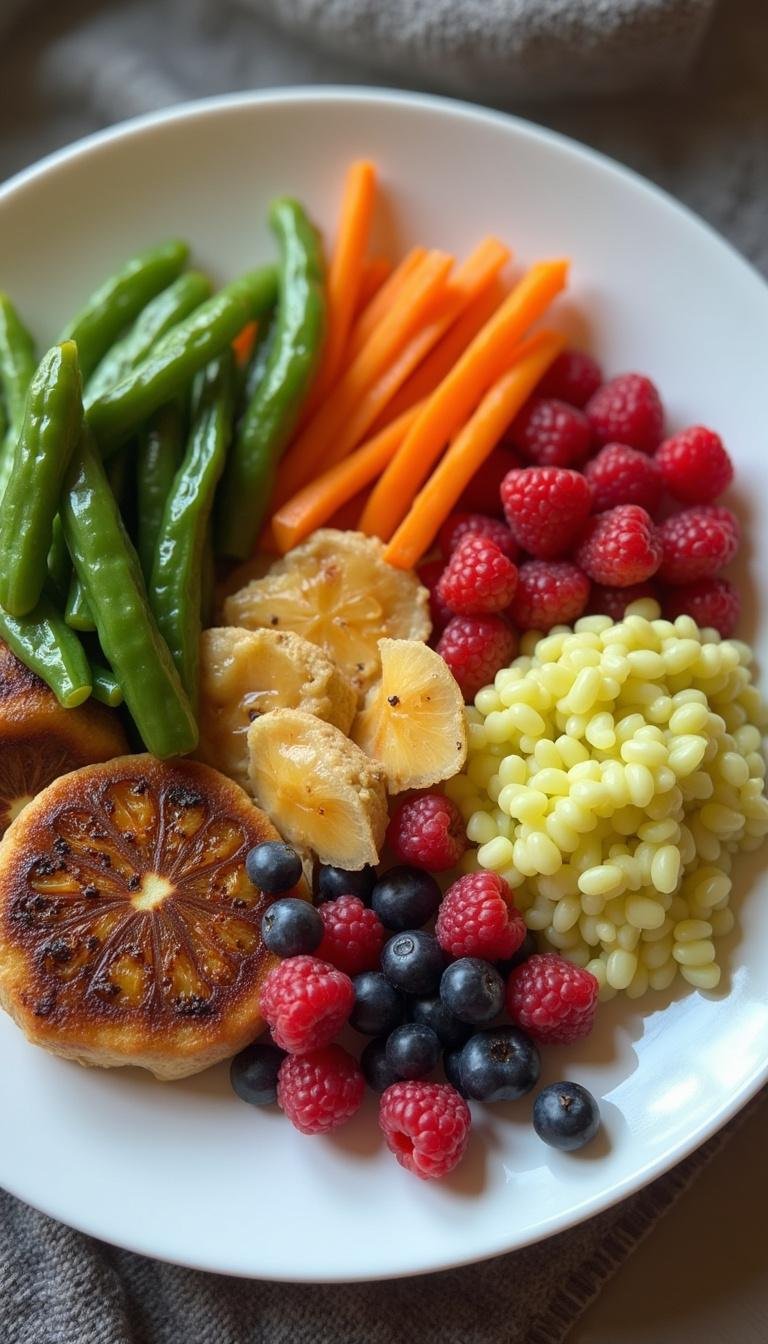1. Introduction
Premenstrual Dysphoric Disorder (PMDD) is a complex hormonal condition that significantly impacts women’s mental health, characterized by severe mood swings, irritability, depression, and anxiety that can disrupt daily life. While traditional medical treatments offer relief, many women prefer exploring natural support options to manage hormone-driven mood shifts more holistically. In this comprehensive guide, similar to a recipe blog or culinary website, we will delve into various nourishing strategies—covering food inspiration, lifestyle changes, and holistic practices—that help support hormonal balance and emotional well-being during PMS and PMDD. Think of this as your essential food website for women seeking natural solutions to hormone-related emotional challenges.

2. Understanding PMDD and Its Impact on Your Mood
PMDD affects approximately 5-8% of women of reproductive age, with symptoms including intense emotional discomfort and physical symptoms around menstruation. Recognizing how hormone fluctuations influence mood is key to finding natural remedies. The root of hormone-driven mood swings lies in imbalances in estrogen and progesterone, which directly influence neurotransmitters such as serotonin—an essential neurotransmitter that regulates feelings of happiness and calmness. For those interested in boosting serotonin naturally, exploring natural methods to raise serotonin and dopamine levels can be very helpful.
How Hormone Fluctuations Cause Mood Swings
Throughout the menstrual cycle, estrogen and progesterone levels fluctuate, impacting brain chemistry and emotional health. Sudden drops in hormone levels during the luteal phase can trigger feelings of sadness, irritability, or anxiety. Understanding this hormonal dance empowers women to choose lifestyle modifications and dietary strategies that promote hormone stability, much like a carefully crafted recipe blog guides with well-balanced ingredients for health.

3. Natural Support Strategies to Balance Hormones and Reduce Mood Swings
Adopting a holistic approach to hormonal health is vital for managing PMDD symptoms naturally. A nourishing diet combined with lifestyle adjustments can significantly improve mood stability. For example, incorporating heavily hailed nutritional supplements such as **magnesium**—which is crucial for mental health—can be a game-changer. For additional guidance on mood-enhancing supplements, check out magnesium’s role in mental health. Focus on foods that are rich in magnesium, B vitamins, and healthy fats—like leafy greens, nuts, and fatty fish—while exploring top trending kitchen ideas for easy meal prep on your culinary journey.
- Incorporate Nutrient-Rich Foods: Load your plate with magnesium-rich leafy greens, nuts, seeds, and omega-3 fatty acids found in oily fish like salmon, which are essential for supporting hormonal balance and soothing mood swings.
- Prioritize Regular Exercise: Regular movement such as yoga or brisk walks helps regulate cortisol and supports hormonal equilibrium. To deepen your practice, consider exploring popular yoga retreats in Hawaii with top yoga retreats in Hawaii.
- Manage Stress Effectively: Incorporate relaxation techniques like meditation and outdoor activities into your kitchen ideas for stress relief, which can reduce the impact of stress hormones on your mood.
- Consider Herbal Supplements: Herbs such as Vitex (Chaste Tree), Black Cohosh, and St. John’s Wort may promote hormonal harmony. Always consult your healthcare provider before adding herbal remedies into your routine. Many women find that natural herbal support helps restore emotional stability during premenstrual phases.

4. Foods That Help Support Hormonal Balance and Mood Stability
Nutrition plays a pivotal role in alleviating PMDD symptoms. Incorporate a variety of healthy recipes and meal ideas that emphasize whole foods, fermented items, and nutrient-dense ingredients. For example, including fermented foods like yogurt, kimchi, or sauerkraut offers gut health benefits, which are closely linked to hormonal and mental health support. For inspiration, you might explore some of the trending vegetarian recipes or quick meal prep options on your favorite food blog.
- Whole Grains and Legumes: Brown rice, quinoa, lentils, and chickpeas provide complex carbohydrates and B vitamins that are essential for neurotransmitter production and mood regulation.
- Leafy Greens and Cruciferous Vegetables: Spinach, kale, broccoli, and Brussels sprouts help detoxify excess hormones and promote healthy estrogen metabolism.
- Healthy Fats: Incorporate omega-3 fatty acids from sources like avocados, olive oil, and fatty fish—key ingredients in many popular healthy recipes.
- Fermented Foods: Enjoy yogurt, kefir, sauerkraut, or kimchi to support gut microbiome health, which has a direct impact on mental clarity and mood stability.

5. Practical Lifestyle Tips and Recipes for Managing PMDD
Small changes in your daily routine—especially in your kitchen ideas—can profoundly impact your hormonal health. Focusing on quick, nourishing recipes and strategies like meal prepping can help you stay on track. Consider preparing immune-boosting snacks and meals rich in greens and healthy fats, perfect for days when mood symptoms flare up. For an extra layer of relaxation, sip herbal teas like chamomile or raspberry leaf to soothe your nervous system. Enhancing your vitamin D and B-complex intake through supplementations can also be quite beneficial. Debugging your sleep routine by creating a consistent schedule is another key aspect of nurturing hormonal balance.
Cooking Tips to Enhance Your Meal Experience
Use fresh ingredients, experiment with spice blends, and practice mindful cooking techniques—these practices turn your kitchen into a sanctuary that nurtures hormonal health and emotional stability. For inspiration on how to elevate your kitchen ideas, explore trending kitchen gadgets like infrared light therapy panels for at-home red light therapy, which many find beneficial for overall health. See options here: Red Light Therapy for Body.

6. Conclusion and Final Thoughts
Successfully managing hormone-driven mood swings naturally involves a combination of nourishing foods, mindful lifestyle choices, and holistic support. By embracing whole foods, effective stress management, and practical herbal support, women can foster a more stable emotional state and overall well-being. Just as a recipe blog shares beautiful recipes and kitchen ideas, your approach to hormonal health should be personalized, sustainable, and infused with care. Always consult healthcare providers to tailor strategies specifically for your needs and create a balanced, nourishing life.
FAQs on PMDD and Natural Support
What are some effective natural remedies for PMDD?
Effective natural remedies include herbal supplements such as Vitex and Black Cohosh, lifestyle practices like yoga and stress reduction, and dietary choices rich in omega-3s, vegetables, and fermented foods. These strategies help promote hormonal harmony and reduce mood swings, echoing the principles shared in top emotional healing retreats.
Can diet influence hormone-driven mood swings?
Absolutely! A nutrient-dense diet rich in magnesium, B vitamins, leafy greens, and healthy fats plays a fundamental role in regulating hormones and neurotransmitters, making it a cornerstone of natural PMDD management akin to food inspiration on a health-focused recipe sharing site.
Is exercise helpful for managing PMDD symptoms?
Yes, regular physical activity like yoga, walking, or outdoor workouts can help lower cortisol and boost endorphins—natural mood stabilizers. For an extra rejuvenating experience, consider joining a wellness retreat, such as the California yoga retreat.
When should I see a doctor about my symptoms?
If your symptoms are severe, persistent, or interfere with daily life despite lifestyle and dietary adjustments, it’s important to consult a healthcare professional for personalized diagnosis and treatment options. Prioritizing your mental health is key, much like selecting the right healthy recipes for your well-being.


2 thoughts on “Understanding PMDD: Natural Support for Hormone-Driven Mood Swings”